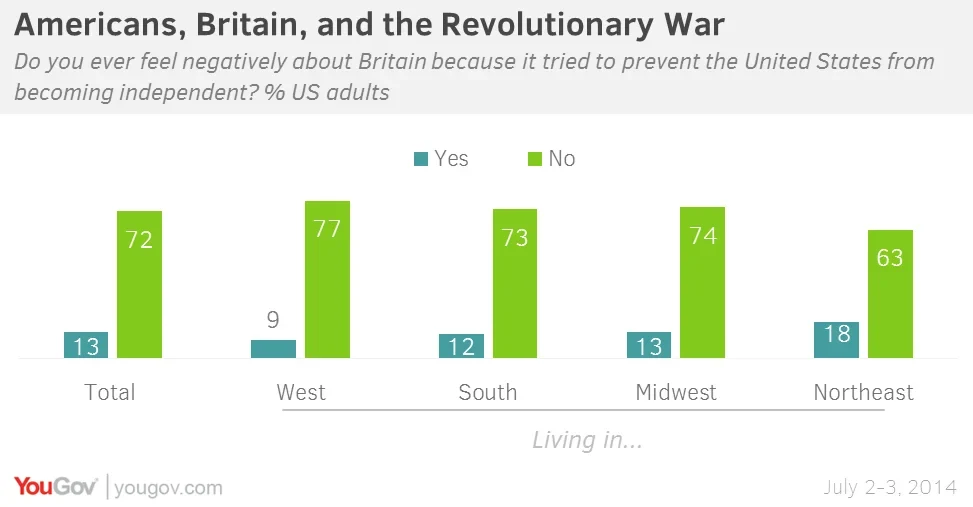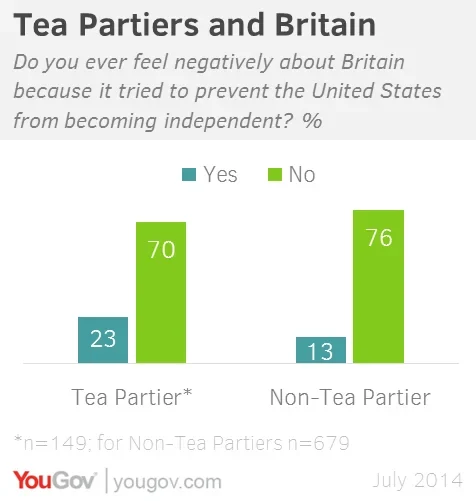The vast majority of Americans have fully moved on, but a small group still feel negatively towards Britain for opposing their independence over two centuries ago
Anglo-American relations since the end of WWII or so have mostly been marked by the “special relationship”, or an especially great level of cooperation and understanding between the two countries. But today marks the 238th anniversary of the signing of the United States Declaration of Independence, or, in American terminology 4th of July, when Americans take the day off to celebrate their breakaway from Great Britain with barbecues and fireworks – and, a new YouGov poll suggests, when a small group of Americans revisit some age-old resentments regarding their onetime colonial rulers.
A not-insignificant minority of 13% of Americans say they sometimes feel negatively about Britain because “it tried to prevent the United States from becoming independent”. 72% do not, and another 15% are “not sure”.
Interestingly, the feelings appear to be most common in the former colonies themselves. While only 9% of people in the West of America harbour the grudge, the number is twice that, or nearly one fifth (18%) of those in the Northeast, the region where New England and nine of the states that made up the Thirteen Colonies can be found.

It may not fully come as a surprise to people in Britain that this part of American history has such potency with some people there. Americans are known for their patriotism and observers need look no further than political rallies for the Tea Party movement to see evidence of how patriotism has become mixed up with Revolutionary Era imagery. The movement’s name itself is in homage to the Boston Tea Party, an event that was a catalyst in the American Revolutionary War and involved demonstrators dressed as American Indians dumping a shipment of tea into the Boston Harbour in protest of the 1773 Tea Act.
Some 31% of Americans say they support the goals of the modern Tea Party movement, which advocates for lower taxes and limited government, although only 13% consider themselves a part of the movement. These core ‘Tea Partiers’ also appear far more likely to have hard feelings about the Revolutionary War than those who aren’t part of the movement.

Americans do tend to have a favourable impression of the British royal family, by 60-21%, although there is no desire to have one themselves. The idea of having a “ceremonial royal family, like the one in Britain” is rejected by an overwhelming margin (73-13%).
Image: Getty





